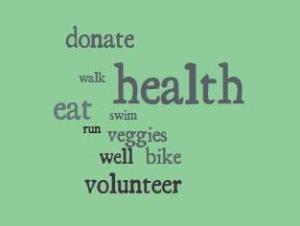The University of California Berkeley’s Greater Good – The Science of a Meaningful Life Center has compiled studies and articles that show the benefits of altruism.
Bottom line – keep giving your time and money to good causes because it is good for the community, and you!
- Altruism makes us happy: Researchers have consistently found that people report a significant happiness boost after doing kind deeds for others. Some studies suggest giving to others makes people feel happier than spending money on themselves; this has even been found among kids. These good feelings are reflected in our biology: giving to charity activates brain regions associated with pl
 easure, social connection and trust. Scientists also believe that altruism may trigger the release of endorphins in the brain, giving us a “helper’s high.”
easure, social connection and trust. Scientists also believe that altruism may trigger the release of endorphins in the brain, giving us a “helper’s high.”
- Altruism is good for our health: People who volunteer tend to experience fewer aches and pains, better overall physical health and less depression; older people who volunteer or regularly help friends or relatives have a significantly lower chance of dying. Researcher Stephen Post reports that altruism even improves the health of people with chronic illnesses such as HIV and multiple sclerosis.
- Altruism is good for our bottom line: Studies suggest that altruists may reap unexpected financial benefits from their kindness because others will feel compelled to reward their kindness; other research has found that donating money to charity might make corporations more valuable. Across the animal kingdom, animals that cooperate with each other are more productive and survive longer.
- Altruism is good for our love lives: When researcher David Buss surveyed more than 10,000 people across 37 cultures, he found that kindness was their most important criterion for a mate and the single universal requirement for a mate across all cultures.
- Altruism fights addiction: Studies have shown that addicts who help others, even in small ways, can significantly improve their chances of staying sober and avoiding relapse; this is true among adults and adolescents alike.
- Altruism promotes social connections: When we give to others, they feel closer to us, and we also feel closer to them. “Being kind and generous leads you to perceive others more positively and more charitably,” writes positive psychologist Sonja Lyubomirsky in her book The How of Happiness, and this “fosters a heightened sense of interdependence and cooperation in your social community.”
- Altruism is good for education: High-quality service learning programs, where students complement their classroom learning with real-world community service, improve academic performance and make students feel more connected to their school. And when students engage in “cooperative learning,” where they must work together to complete a project, they are more likely to have positive relationships, better psychological health and are less likely to bully their peers.
- Altruism is contagious: When we give, we don’t only help the immediate recipient of our gift. We also spur a ripple effect of generosity through our community. Research by James Fowler and Nicholas Christakis has shown that altruism can spread by three degrees—from person to person to person to person. “As a result,” they write, “each person in a network can influence dozens or even hundreds of people, some of whom he or she does not know and has not met.”
